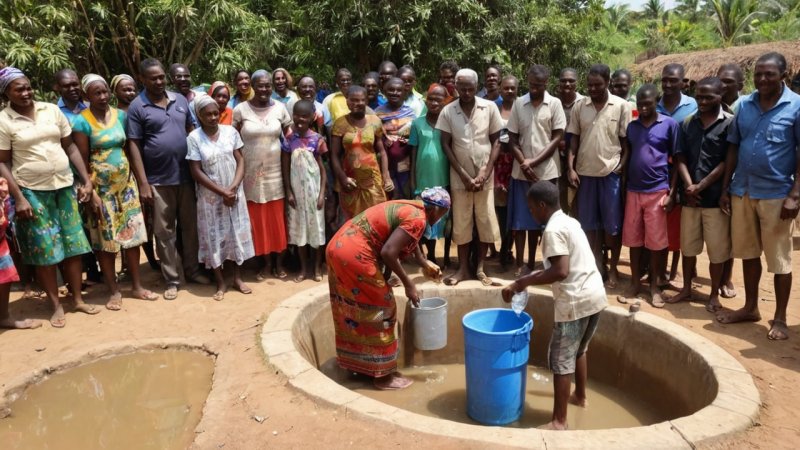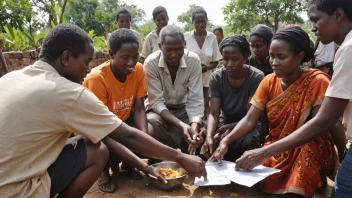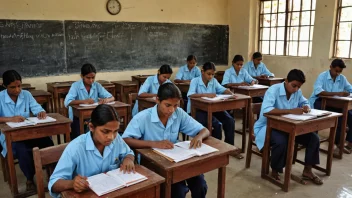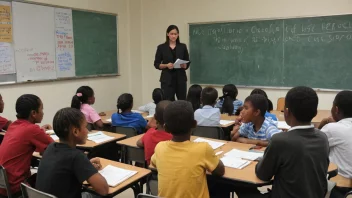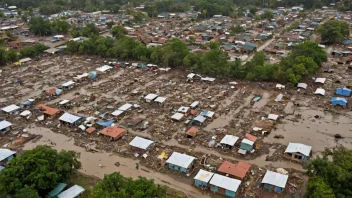Access to clean water is a fundamental human right and a critical component in the fight against poverty. In many parts of the world, millions of people face daily struggles to obtain safe drinking water, which not only affects their health but also their ability to thrive in society. The lack of clean water exacerbates poverty, leading to a cycle that is difficult to break. This article delves into the significance of clean water access, its impact on health and education, and how communities can work towards ensuring this vital resource is available to all.
Health Impacts of Unsafe Water
Unsafe drinking water is linked to a myriad of health issues, including waterborne diseases such as cholera, dysentery, and typhoid fever. These diseases disproportionately affect vulnerable populations, particularly children under five. According to the World Health Organization, an estimated 829,000 people die each year from diarrhea caused by contaminated water. The burden of disease not only affects individuals but also places a significant strain on health care systems, diverting resources that could be used for other health initiatives.
Furthermore, the health implications extend beyond immediate illnesses. Chronic exposure to unsafe drinking water can lead to long-term health issues, including stunted growth in children, reproductive health problems, and weakened immune systems. The connection between health and poverty is evident; poor health limits individuals' ability to work and support their families, perpetuating the cycle of poverty.
Education and Clean Water Access
Access to clean water is also crucial for education. In many regions, particularly in developing countries, schools lack adequate sanitation facilities, leading to high dropout rates, especially among girls. When schools do not have access to clean water and proper sanitation, students are often forced to miss school to collect water or deal with health issues caused by contaminated sources.
Moreover, the presence of clean water in schools can significantly enhance the learning environment. Students who are healthy and well-nourished are more likely to attend school regularly and perform better academically. Initiatives that focus on providing clean water and sanitation facilities in schools not only improve students' health but also empower them to achieve their educational goals.
The Economic Case for Clean Water
Investing in clean water initiatives yields significant economic returns. The World Bank estimates that every $1 invested in water and sanitation can return $4 in economic benefits. Access to clean water enhances productivity and economic growth by reducing healthcare costs, increasing school attendance, and improving workforce efficiency.
Communities with clean water access can also attract investment and development. Businesses are more likely to operate in areas where there is a reliable supply of clean water, leading to job creation and economic opportunities. Conversely, regions plagued by water scarcity struggle to develop economically, further entrenching poverty.
Community Initiatives and Global Efforts
Numerous initiatives are underway globally to address the clean water crisis. Organizations like Water.org and charity: water focus on providing sustainable water solutions, such as building wells and rainwater harvesting systems. These initiatives often involve the local community in planning and implementation, ensuring that the solutions are tailored to the specific needs of the population.
Additionally, governments and international organizations are recognizing the importance of clean water access in achieving the Sustainable Development Goals (SDGs). Goal 6 specifically aims to ensure availability and sustainable management of water and sanitation for all. This global commitment encourages collaboration between countries, NGOs, and local communities to create sustainable solutions.
How Individuals Can Get Involved
- Raise Awareness: Inform your friends and family about the importance of clean water access and the challenges many communities face.
- Volunteer: Look for local organizations that focus on water and sanitation projects. Volunteering your time can make a significant difference.
- Advocate: Support policies that prioritize water access and sanitation services in your community and beyond.
- Participate in Events: Join or organize community events focused on raising awareness or funds for clean water initiatives.
- Educate Yourself: Stay informed about global water issues and the organizations working to solve them.
Conclusion
Access to clean water is not only essential for health but also a cornerstone in the fight against poverty. It affects education, economic development, and overall community well-being. By understanding the significance of clean water access and supporting initiatives that promote it, individuals can play a vital role in breaking the cycle of poverty and ensuring a healthier, more equitable future for all. The path to a world where everyone has access to this fundamental resource is challenging, but through collective action, it is achievable.
